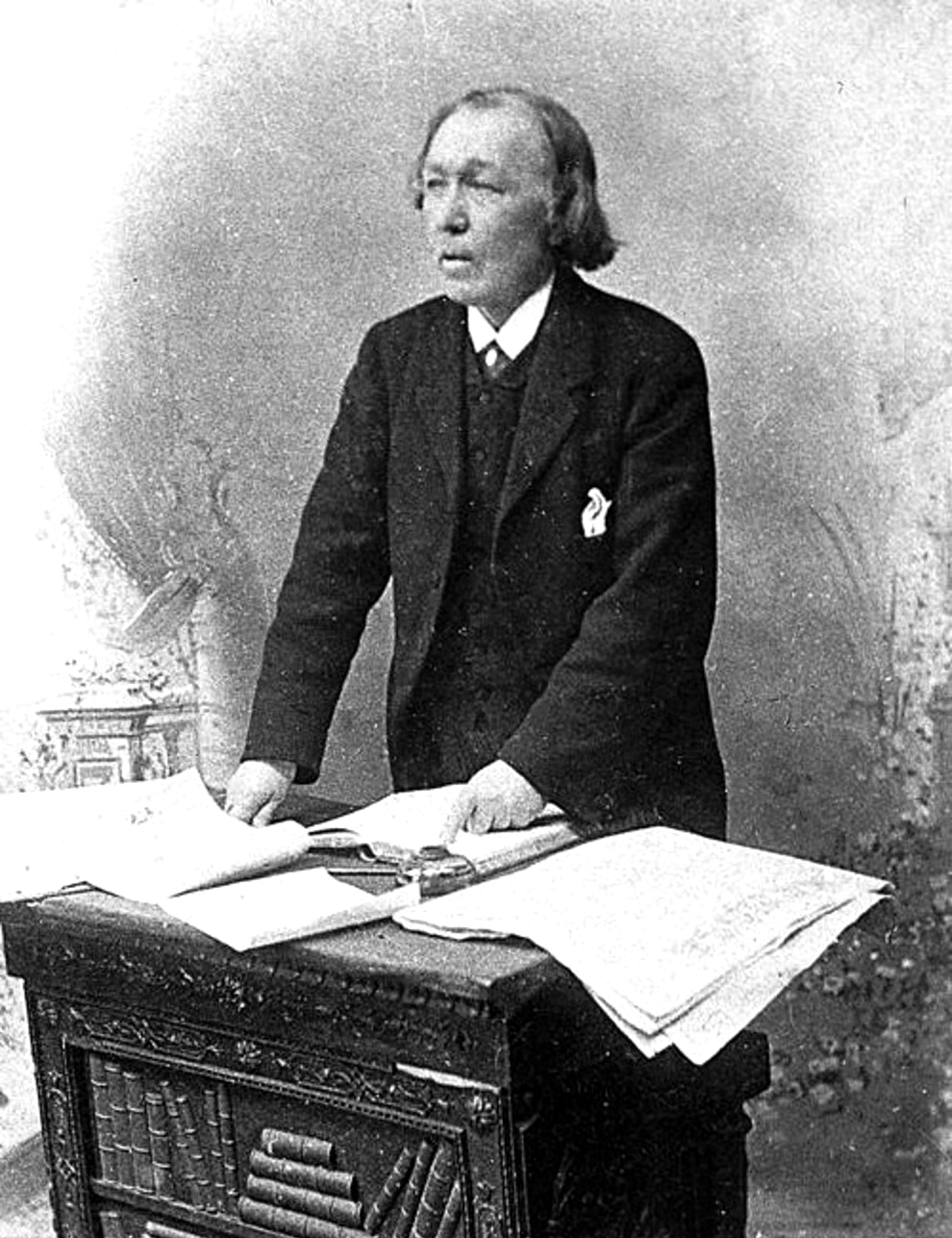


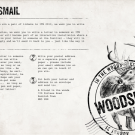








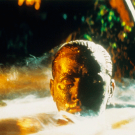
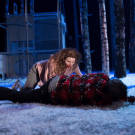



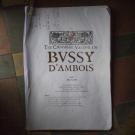






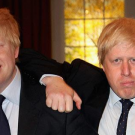















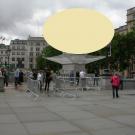


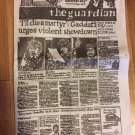
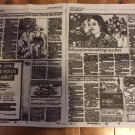




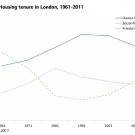
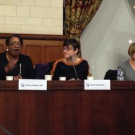








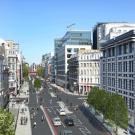


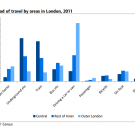
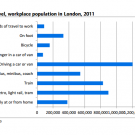
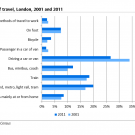




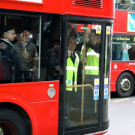






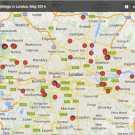

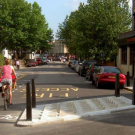



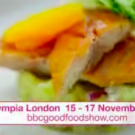
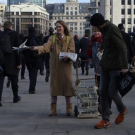
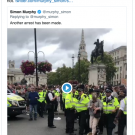










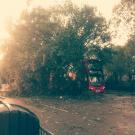
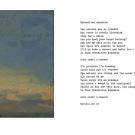



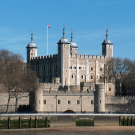


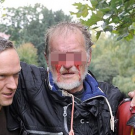











Assembly's non-Tories call Mayor Johnson's Estuary airport plan "simplistic" and a "vanity project"
“This Assembly believes that the Mayor’s plans for a new airport in the Thames Estuary are simplistic and ill-considered and calls upon him to abandon this vanity project.”
Labour AM Murad Qureshi’s motion passed 15-9, with Conservatives opposed and non-Conservatives in favour. So it’s a predictably partisan response which doesn’t teach us much about the question of whether London needs some airport expansion, or where any extra capacity should be built.
But with the Standard enthusiastically handing out the shovels, it’s important that airport-sceptics make their voices heard.
The Standard – We need a proper modern airport – get on with it
See also:
Does London need another airport?
21 Jun 2012



















































































































@ThoughtCatalog gets London badly, badly wrong
Thought Catalog is a popular website with twentysomethings across the US and UK. It publishes articles such as How You Know You’re About To Have Terrible Sex and Things I Wish People Told Me When I Entered My 20s and The 3 People To Fear At Your Unpaid Internship
It’s popular because it focusses on the one subject that matters to today’s twentysomethings more than any other: themselves.
Yesterday they published What it feels like to live in London by Rosie McCap, an American “currently residing in New York City”. It’s a fascinating insight to how newcomers to a city can manage to get almost everything about it hideously, appallingly wrong. Here are some of the things Rosie thinks you’ll feel if you live in London. My gloss in italics:
“Reveling in your ex-patriotism, you will start drinking tea instead of coffee, root for Manchester United, listen to BBC Radio 1 and become an avid watcher of Doctor Who.”
When I live in New York I’m going to support the Los Angeles Dodgers
“In a smoky pub around the corner from your flat, you’ll play darts with old men whose teeth are missing but whose minds are as sharp as a tack.”
Ah those gummy old pub sages – haven’t we all enjoyed the benefit of their toothless wisdom?
“Up-and-coming designers will sell you their fashions from boutique shops on Brick Lane; you’ll get the rest of your clothing from vintage stores somewhere outside the city limits.”
I get my boxer shorts from a vintage boutique in Rickmansworth
“There will be a tattoo of the Union Jack above your hip, or maybe you’ll get your eyebrow pierced in Camden.”
Maybe I will, Rosie. Maybe I will
“You’ll meet British men who are repulsed by your foreign accent…Once they’ve gotten to know you, they will like you, and even fall in love with you. They will treat you like gold. They will take you for a weekend of surfing in Cornwall, and if they love you, they will take you to Paris, or Greece.”
Haven’t been taken to Paris or Greece recently? Your relationship is a husk
Let’s get straight past the annoyance of the “you wills”. That’s just an affectation of style. Simply replace them with “I dids” and the meaning of the post becomes clear.
What’s amazing about this post is that someone can come to London expecting life to be just like Notting Hill or Love Actually, and learn through bitter experience that daily life is exactly like…Notting Hill or Love Actually!
It isn’t. This isn’t what London’s really like. People don’t actually live in this ridiculous, sentimentalised fairy land of “smoky pubs” and “up-and-coming designer clothes”. The post is called “What it feels like to live in London”. Rosie may have felt like this during her stay. But here’s a lesson my generation doesn’t really want to hear: just because you feel something doesn’t mean it’s real.
21 Jun 2012



















































































































Scorpions and ninja turtles: five surprising revelations from the BBC's Unnatural History of London
Last night the BBC screened a documentary about nature in London. Here are some of the things it taught us:
1. Here be scorpions
A colony of European yellow-tailed scorpions (Euscorpius flavicaudis) have lived at Sheerness in Kent since 1860, but the documentary suggests that these cuddly little fellas can now be seen down by London’s docks. They are 2 inches long, nocturnal, ambush predators who eat spiders and woodlice. And relax – their sting, while venomous, is reckoned no worse than a wasp’s.
2. Hedgehogs like coffee
Hedgehogs are an animal in trouble (stop using slug pellets, people!). They are also caffeine fiends. I didn’t know they liked the syrupy remains of coffee at the bottom of discarded cups. Some hedgehogs have shoved their snout too far inside the cup, got trapped, and died. That’s how much they want the delicious golden nectar, and it’s a feeling we can all relate to I am sure.
3. There’s a reason you never see a baby pigeon
Well you don’t, do you? They remain in their nests tucked away in the sides and tops of office blocks until they are fully grown. Also of note: pigeons breed all year round, which helps to explain their success. The pigeon part of the film was rubbish though. “Pigeons in Kensington are posher than those in Peckham” oh shut up.
4. Cute little duckings get eaten by Teenage Mutant Hero Turtles
The ponds and waterways of London are apparently full of terrapins, many of which can be traced back to the Turtle craze of the early nineties. In a case of life imitating art (yes, ART), some young terrapins escaped from their owners and set up home for themselves. And terrapins eat ducklings. Is it not a wonder, how even the most innocent childhood craze can have consequences which could never be foreseen?
5. Remember your geography
I thought the script a little clunky, a little “this is London’s wildlife as you’ve NEVER seen it before.” But there was one nice line at the start, which helped contextualise what we’ve changed about the landscape, and what we haven’t.
“Despite all the changes, London is still a handful of gently rolling hills that fall away to a flood plain…with a river running through it.”
It’s a modern city, but that description remains accurate. And that’s something to be glad about.
Watch the full episode on iPlayer here (available until 25/06/12).
Extra info and short clips here
See also:
Five lessons for London from Clapton Park’s verdant ‘poppy’ estate
Interviewed: @FaBPeregrines on the wild hunters stalking the city skies
Forget the scaremongering, here’s some practical advice for dealing with urban foxes
Five great London journeys into the sunset
19 Jun 2012



















































































































Read "the worst poet ever" William McGonagall's terrible poem about London
Over 100 years after his death, Scottish poet William Topaz McGonagall (1825-1902) is still revered across the world by connoisseurs of bad poetry. His Wikipedia profile puts it like this:
“He won notoriety as an extremely bad poet who exhibited no recognition of or concern for his peers’ opinions of his work.”
The McGonagall Online website says:
“William Topaz McGonagall, poet and tragedian of Dundee, has been widely hailed as the writer of the worst poetry in the English language. A self-educated hand loom weaver from Dundee, he discovered his discordant muse in 1877 and embarked upon a 25 year career as a working poet, delighting and appalling audiences across Scotland and beyond. His audiences threw rotten fish at him, the authorities banned his performances, and he died a pauper over a century ago.”
He is most famous for his extraordinary poem to mark the Tay Bridge rail disaster of 1879. It begins:
“Beautiful railway bridge of the silv’ry Tay
Alas! I am very sorry to say
That ninety lives have been taken away
On the last sabbath day of 1879
Which shall be remembered for a very long time.”
You can read the whole of that wonderful poem here.
What I didn’t know is that McGonagall came to London, in 1880, to make his fortune as a poet. While here he wrote the following poem, which I think really captures the essence of the metropolis:
Descriptive Jottings of London.
As I stood upon London Bridge and viewed the mighty throng
Of thousands of people in cabs and ‘busses rapidly whirling along,
All furiously driving to and fro,
Up one street and down another as quick as they could go:
Then I was struck with the discordant sound of human voices there,
Which seemed to me like wild geese cackling in the air:
And the river Thames is a most beautiful sight,
To see the steamers sailing upon it by day and by night.
And the Tower of London is most gloomy to behold,
And the crown of England lies there, begemmed with precious stones and gold;
King Henry the Sixth was murdered there by the Duke of Glo’ster,
And when he killed him with his sword he called him an impostor.
St. Paul’s Cathedral is the finest building that ever I did see;
There’s nothing can surpass it in the city of Dundee,
Because it’s most magnificent to behold
With its beautiful dome and spire glittering like gold.
And as for Nelson’s Monument that stands in Trafalgar Square,
It is a most stately monument I most solemnly declare,
And towering defiantly very high,
Which arrests strangers’ attention while passing by.
Then there’s two beautiful water-fountains spouting up very high,
Where the weary travellers can drink when he feels dry;
And at the foot of the monument there’s three bronze lions in grand array,
Enough to make the stranger’s heart throb with dismay.
Then there’s Mr Spurgeon, a great preacher, which no one dare gainsay
I went to hear him preach on the Sabbath-day.
And he made my heart feel light and gay
When I heard him preach and pray.
And the Tabernacle was crowded from ceiling to floor,
And many were standing outside the door;
He is an eloquent preacher, I solemnly declare,
And I was struck with admiration as I on him did stare.
Then there’s Petticoat Lane I venture to say,
It’s a wonderful place on the Sabbath day;
There wearing apparel can be bought to suit the young or old
For the ready cash- silver, coppers, or gold.
Oh! mighty city of London! you are wonderful to see,
And thy beauties no doubt fill the tourist’s heart with glee;
But during my short stay, and while wandering there,
Mr Spurgeon was the only man I heard speaking proper English I do declare.
I think the man’s genius speaks for itself.
See also:
Five classic poetry readings, available free online
The most annoying bits of bad English on London’s tube network
Five grammatical rules technology is destroying
Five filthy, dirty, obscenely sexual poems from the past
Follow Mike
Twitter: @MikPollitt
Email: michael.pollitt@snipelondon.com
19 Jun 2012
Exhibition heads up: The Gaddafi Archives
Over a thousand photographs of photographs which tell the story of Colonel Gaddafi’s Libya will go on show on Thursday as part of the London Festival of Photography (full list of events here, map of venues here).

From the organisers:
“Pictures and documents from state intelligence buildings and destroyed Gaddafi residences that were found by Human Rights Watch’s emergencies director Peter Bouckaert, and recorded and photographed at the sites, will be presented…Rare images of the period when Libya was effectively closed to the West from the mid-70’s until the revolution depict social chaos, the era of the Green Book, torture and military misadventure and Gaddafi’s strategic foreign trips to eastern Europe and the Middle East”.
So, a chance to indulge in some Gaddafi fashion lols and learn something about an interesting place.
It’s at the Warburg Institute near Russell Square, from 21-29 June. Tickets £7.50. Full details here
Images published by permission of London Festival of Photography. This post was corrected soon after publication to remove gross inconsistencies in the spelling of Colonel Gaddafi’s name.
18 Jun 2012



















































































































Boris Johnson's desire for "supreme power" isn't the story. His desire for a new airport is
“We have to have a new airport. One of the only reasons I want to assume supreme power in England is to make sure that happens…For God’s sake, don’t quote me saying that.”
Occasional London Mayor Boris Johnson spoke to New York Magazine as part of his book tour of the US. The quote above has produced the following reactions:
Daniel Knowles at the Telegraph – Boris Johnson: ‘I want to assume supreme power’
Guido Fawkes – Boris: “I Want to Assume Supreme Power”
Sunny Hundal at Liberal Conspiracy – Boris Johnson: ‘I want supreme power in England’
Mayor Johnson saying he wants “supreme power” is what’s called a “colourful” quote. I get it. People like colourful quotes. But it doesn’t mean anything. It’s not important. It’s a joke!
Sunny Hundal at Liberal Conspiracy at least gestures to the important bit:
“But more seriously, it’s worrying that he is still obsessed with such a foolhardy plan as the Estuary airport.”
Yes. That is more serious. Whether or not London needs more air capacity, and if so where it might be built, is important. Mayor Johnson’s lively phrase-making is not.
1230 UPDATE: Lo and behold, from the Standard – Boris Johnson has given his support to plans to build a second runway at Stansted Airport
See also
Boris’s new airport plans dubbed ‘ridiculous’ by Kent Tories
Pigs have as much chance of landing in the Thames estuary as planes. So what’s going on?
Does London need another airport?
18 Jun 2012



















































































































The "Nomadic Occupiers" of Hampstead Heath are now just occupying their own narcissism
Here’s protester Tammy Samede speaking to the Standard, after a rump of Occupiers were evicted from Hampstead Heath.
“What they don’t realise is that this is a victory for us. It doesn’t matter if they move us on after three months or 24 hours. The fact is that we were here.”
Their very presence was a triumph. Their very being is a win. In this way, for many protesters although I concede not all, protest has become an end in itself. And the Occupiers, busily admiring their reflection in the Heath’s bathing ponds and scrawling “we woz ere 2012” on the benches, have become irrelevant to everyone else.
Evening Standard – Protesters booted off Hampstead Heath by police
Occupy LSX website
14 Jun 2012



















































































































Friends of the Earth's clean energy stunt bedecks London statues
I can’t help feeling that the proximity of a sizable spherical medal does nothing for Queen Victoria’s figure.
It’s one of those stunts that charities have to do to get coverage from the likes of us. In this case, Friends of the Earth want to promote clean British energy and encourage you to switch your supplier.
The press release is here.
Friends of the Earth are on Twitter – @wwwfoecouk
14 Jun 2012
Five lessons for London from Clapton's verdant "poppy" estate
The estates of Clapton Park are in bloom. For over a decade their communal spaces have been maintained in a different way to most other estates, with a focus on flowers, food and reducing herbicides. The fruits of this stewardship are all around. I took a look last week as part of a tour given for the Chelsea Fringe. Here are some things I learnt.
1. People come first
John Little, whose Grass Roof Company maintains the estate on behalf of the tenants association, is clear where his priorities lie. Birds and bees are all very well, but it’s people he really wants to please. The estates form a island of biodiversity in the tarmacked city, but not an any cost. “We talk about biodiversity if we’re applying for grants”, says John. But wildflower stems are not left on the ground for overwintering insects. The residents don’t want that, they think it looks messy. The residents get what they want. This is important, he says, because otherwise the whole project could break down. There’s a lesson here for environmentalists: compromise might not be perfect, but it’s better than nothing at all.
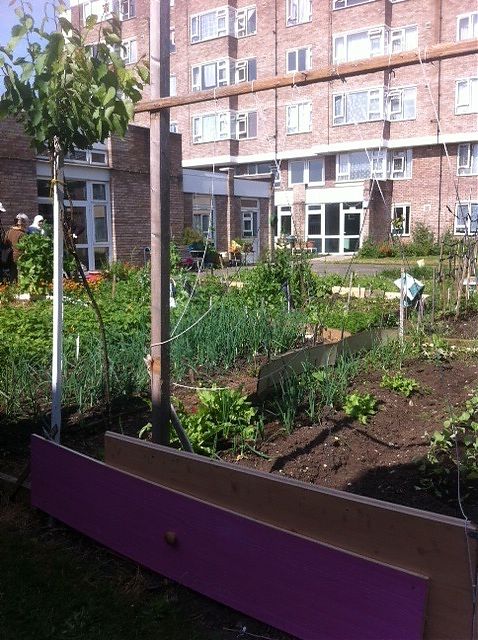
2. There’s no accounting for taste. Estate residents massively underrate the delicious taste of rosemary
The founding legend of the poppy estate says that one resident, Fatima, began it all by sowing coriander seeds under a rose bush outside her flat. From these handsown seeds did all the others grow. Now the estates have four veg plots, and walls are lined with communal herbs – free for anyone to come and pick. The local preferences surprised me. Mint is very popular, by all accounts. Rosemary grows strong and healthy, but only because it is never plucked. Exotic vines coil round pillars, railings and posts. They are grown not for the grapes, but for the leaves, which the estate’s Turkish residents use in their cooking. Sounds delicious. But come on guys, eat some rosemary!
3. Gradual change is good
The first wildflowers were sown around 2000. Progress since then has been gradual, dependent on funding and the wishes of the residents. In 2007 the estate went to the Chelsea Flower Show proper. John emphasisied that many years of piecemeal impovement have created the estate as it is now. It simply wouldn’t have been possible to impose this change from above.
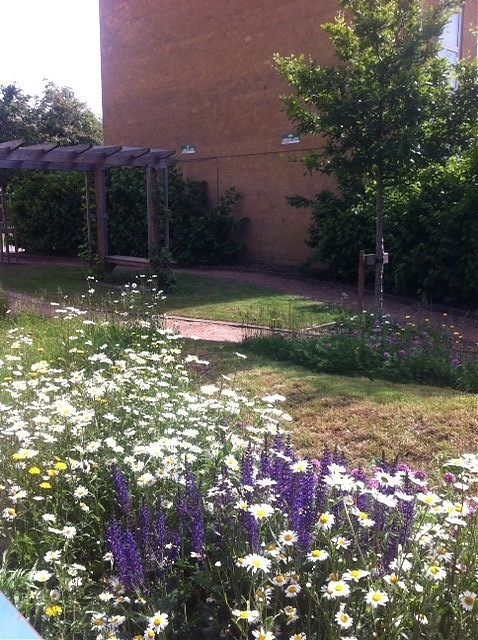
4. There’s a bit of grant money and support around if you know where to look
Rob Elliott, one of the residents accompanying the tour, told me that Capital Growth is a source of financial support for food-growing projects. Anyone with any interest in urban food growing should check out their website. Rob also drew this brilliant map which you can use to guide yourself round the estate.
5. It takes people to make things happen
This all started from residents like Fatima planting their own seeds. Then the tenants association appointed a forward thinking maintenance firm, led by John Little, to look after the estate. Spaces were created for vegetables to be grown, and people started to grow them. People like Rob filled in forms, applied for grants and improved their own parts of the estate. Other residents, who liked the old grass spaces, perhaps for their children to play in, allowed some spaces to be given up for different uses, like vegetables. The result is really lovely, but it didn’t happen by chance. It was people who made it happen.
The Clapton Park, Millfields and Nye Bevan Estates can be found here. The 242 bus is probably your best bet.
13 Jun 2012



















































































































Olympic opening ceremony plans are revealed: sound very Midsomer Murders
The BBC reports details of Danny Boyle’s plans for the London 2012 Opening Ceremony:
“A cast of 10,000 volunteers will help recreate country scenes, against a backdrop featuring farmyard animals and landmarks like Glastonbury Tor.”
Shakespeare is prominent, and the Britain depicted sounds merrie, old and English.
“The set will feature meadows, fields and rivers, with families taking picnics, people playing sports on the village green and farmers tilling the soil.”
Then John Nettles will come on and solve a brutal combine harvester murder before nipping into a tavern for a well deserved pint of pale ale.
But enough snark. Let’s not prejudge this until we’ve seen it. Danny Boyle deserves a fair crack and I’m sure he’s got plenty up his sleeve. But I hope he finds room for a modern, urban vision of Britain too.
12 Jun 2012
Snipe Highlights
Some popular articles from past years
- Summer Camp: Roll out those lazy, hazy, crazy days
- London has chosen its mayor, but why can’t it choose its own media?
- Could red kites be London's next big nature success story?
- An interview with Desiree Akhavan
- Peter Bayley has worked for 50 years as a cinema projectionist in East Finchley
- Number of people using Thames cable car plunges
- The best church names in London, and where they come from
- Random Interview: Eileen Conn, co-ordinator of Peckham Vision
- 9 poems about London: one for each of your moods
- Margaret Thatcher statue rejected by public
© 2009-2025 Snipe London.


